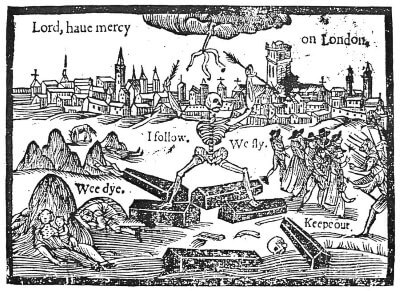When the Black Death massacred up to 50 percent of the European population in the mid-14th century, it appears to have etched an enduring mark on human genetics, altering the frequency of genes that shape our immune systems—which may or may not be a good thing for modern humans.
That's according to a study out Wednesday in Nature from an international team of researchers led by anthropologists and geneticists at McMaster University in Canada and the University of Chicago.
The team dug deep into genetic data from over 200 people who died prior to the Black Death, during the deadly pandemic, and afterward in London and Denmark. Their findings suggest that the pandemic was a selective evolutionary pressure on humans, shifting the diversity of gene variants for at least four immune system-related genes. Subsequent petri-dish experiments with immune cells suggested that variants of the four genes were protective against the plague bacteria—Yersinia pestis—as well as other pathogens. But the authors also note that some of the genes have been associated with an increased risk of autoimmune diseases, such as Crohn's disease, rheumatoid arthritis, and lupus.
"Perhaps this increased risk simply did not matter during the Black Death—the urgency of the pandemic might have made the trade-off an inevitable one," evolutionary biologist David Enard, of the University of Arizona, wrote in an accompanying commentary on the new study. Enard, who was not involved in the study, lauded the study's design.
The findings, he wrote, suggest that "even humans, with their historically small populations and long intervals between generations, can adapt at remarkable speed. But riding the evolutionary bullet train might come at a cost."
Deathly selection
To try to answer the question of whether the Black Death triggered "an episode of natural selection," the authors reached for ancient DNA samples, which is difficult work. While they had enough quality data from 206 remains, they started with 516 samples. Of the 206 ancient DNA extracts that made the cut, 67 were from the pre-Black Death period (dated around 1000 to 1250 for the London samples and 850 to 1350 in Denmark), and 97 were post-Black Death samples (dated 1350 to 1539 in London and 1350 to 1800 in Denmark). The 42 remaining samples were from people killed during the Black Death by the plague. These samples were recovered from the East Smithfield plague cemetery in London, where all who died were buried between 1348 and 1349.
The numbers are small, but the team looked specifically at variations of specific immune system-related genes. Among those, they searched for gene variants that seemed to have become more or less common after the plague—frequency changes well above what would be expected from random genetic drifts. They found hundreds, suggesting natural selection. They whittled down the list by looking for those with opposing frequencies during and after the pandemic. That is, if a gene variant was protective, it would have a low frequency among those who died in the Black Death, but a higher frequency in the years afterward. That took the number of variants of interest down to 35. Then, they looked at variants that appeared to be under strong evolutionary selection in both the London and the Denmark samples, bringing down the number to just four.
The four gene variants identified in the analysis all seemed to have significant roles in governing immune defenses against pathogens. One variant appeared to increase the immune system's ability to detect a signature protein in the outer membrane of Y. pestis. Another appeared to play a role in antigen presentation—which is when specific immune cells present key bits of a harmful germ to other immune cells, namely T cells, so they can quickly identify and attack the germs when they encounter them. The researchers estimated that people who were homozygous (had two copies) of this protective gene variant involved in antigen presentation were 40 percent more likely to survive the plague than those with two copies of a deleterious variant, which encodes a broken protein.
The problem, however, is that these variants have been linked to autoimmune diseases. The finding feeds into hypotheses that ancient epidemics could play a role in the evolutionay origins of autoimmune diseases, Enard writes. But researchers will need far more work on ancient DNA to understand the connection.
Nature, 2022. DOI: 10.1038/s41586-022-05349-x (About DOIs).



3175x175(CURRENT).thumb.jpg.b05acc060982b36f5891ba728e6d953c.jpg)


Recommended Comments
There are no comments to display.
Join the conversation
You can post now and register later. If you have an account, sign in now to post with your account.
Note: Your post will require moderator approval before it will be visible.